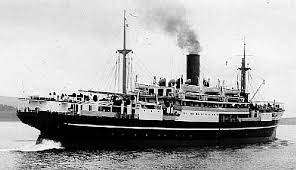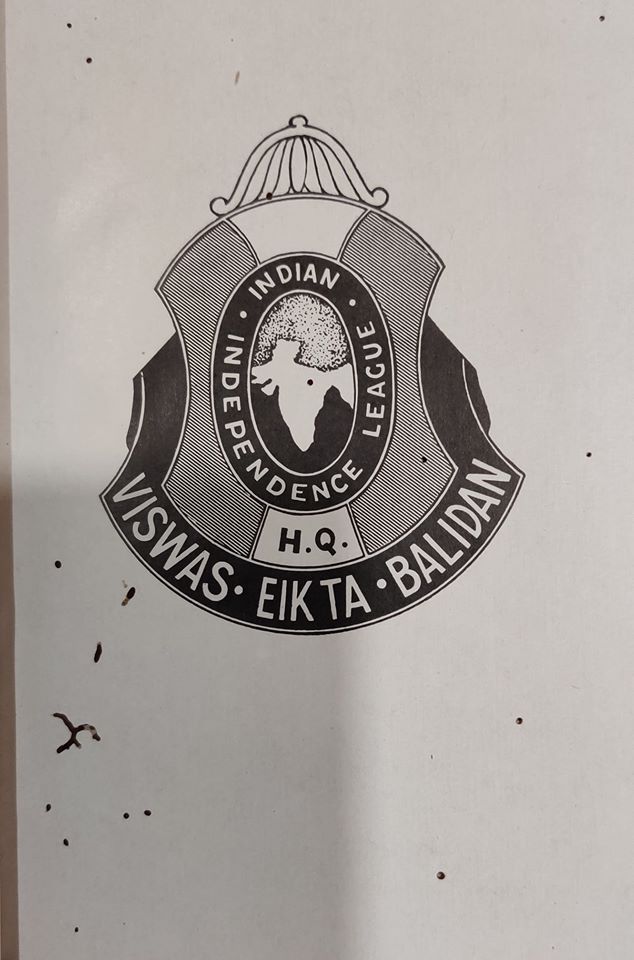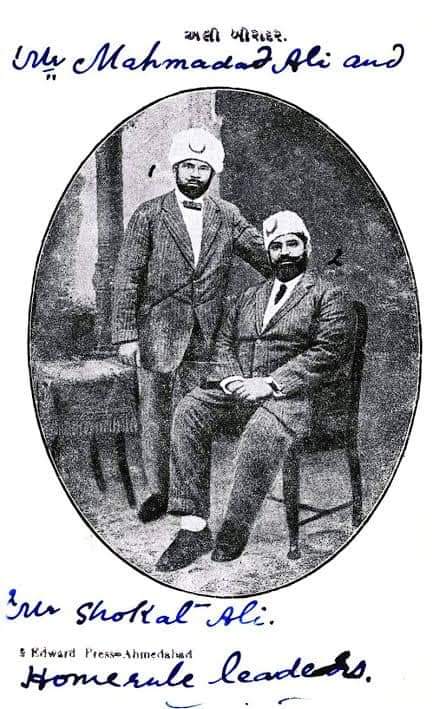
"You are a people of cowdung mentality, living in a cowdung world", Jawahar Lal said addressing a group of Indian villagers in 1956.
(From a Time magazine article: The Uncertain Bellweather, in July 30, 1956)
Snippets from the article here,
content.time.com/time/magazine/…
(From a Time magazine article: The Uncertain Bellweather, in July 30, 1956)
Snippets from the article here,
content.time.com/time/magazine/…
Jawaharlal Nehru works hard at the role of bellwether. He grows furious when Western powers ("these people who try to run Asia without us") refuse to accept India's judgment as the final word on Asian problems. And under his leadership India has become a Mecca for the increasing
number of Asian nations whose foreign policies rest on the twin foundations of "anticolonialism," i.e., anti-Westernism, and "nonalignment," i.e., no commitment in the worldwide struggle between Communism and freedom.
His partisans go further and claim that Nehru speaks for all
His partisans go further and claim that Nehru speaks for all
Asia. This is manifest nonsense. Nehru does not speak for Mao's China, for Japan, for the Philippines, for Formosa, for Korea, for Thailand, for North or South Viet Nam, for Afghanistan, for Pakistan.
In Nehru's name it is argued that Asians possess a spirituality of nature
In Nehru's name it is argued that Asians possess a spirituality of nature
that is superior to Western materialism. But Nehru himself, admired as he is by many Hindus and Buddhists, holds to no spiritual beliefs, and only last week in West Germany he said: "As for myself, I believe in no religion or dogma or faith."
What finally & perhaps irrevocably
What finally & perhaps irrevocably
ended unquestioning U.S. admiration of India was India's role in the Korean war, where Nehru showed himself neutral in favor of Communist China, which he fears as he does not fear the U.S. It was possible to understand Indian neutrality during the fighting. It was all but
impossible to forgive the fact that as the pivotal member of the Korean Armistice Commission, India, at Nehru's personal insistence, abandoned the traditional impartiality of neutral arbiters. In an apparent attempt to win the confidence of Mao Tse-tung, it tried to force 22,500
anti-Communist Chinese P.W.s to return to Red China.
In Parliament Nehru constantly pops up to interrupt, discourses firmly on everything from the evils of too many cocktail parties to what kind of clothing M.P.s should wear. Often these casual expressions of personal opinion
In Parliament Nehru constantly pops up to interrupt, discourses firmly on everything from the evils of too many cocktail parties to what kind of clothing M.P.s should wear. Often these casual expressions of personal opinion
determine national policies. One such statement resulted in the banning in India of films that show Africans in a "degrading light,"' e.g., as bearers on safari. Another killed a widely supported proposal to put a $5,000 ceiling on personal income in India.
As Nehru steps out
As Nehru steps out
of his black Cadillac and climbs onto the speaker's platform, he is approached by women bearing wreaths. With patent impatience he fiddles with the microphones before him, readjusting their height and position. Finally the speech begins. Almost invariably, it will include sharp
attacks on some of India's most cherished beliefs—Hinduism ("a religion that enslaves you") or astrology ("silly nonsense"). Nehru verbally assaults the crowd itself. "You are a people of cow-dung mentality, living in a cow-dung world," he bawled at one group early this year.
None of this, nor the fact that many do not even know the language he addresses them in, bothers his audience. They have come not to hear Nehru but for darshan.
A great gulf separates Nehru from the Indian masses, inherent in Nehru's origin and widened by his English education.
A great gulf separates Nehru from the Indian masses, inherent in Nehru's origin and widened by his English education.
An article in an Indian magazine, the Modern Review, written in 1936, described Nehru in this fashion: "Men like Jawaharlal, with all their capacity for great and good work, are unsafe in a democracy. He calls himself a democrat and a socialist, and no doubt he does so in all
earnestness, but every psychologist knows that the mind is ultimately slave to the heart . . . Jawahar has all the makings of a dictator in him—vast popularity, a strong will, ability, hardness, an intolerance for others and a certain contempt for the weak and inefficient...
Is it not possible that Jawahar might fancy himself as a Caesar?"
Years later the anonymous author of this trenchant judgment announced his identity. It was Nehru himself. Today Nehru is very close to being Caesar. Critics complain that his Cabinet consists not of ministers but
Years later the anonymous author of this trenchant judgment announced his identity. It was Nehru himself. Today Nehru is very close to being Caesar. Critics complain that his Cabinet consists not of ministers but
of courtiers like the mercurial former U.N. delegate Krishna Menon, who is almost as unpopular in India as in the U.S. They charge, too, that Nehru's personal interference in every detail of government has sapped the initiative of his subordinates and prevented the emergence of
potential national leaders.
When he becomes bored or frustrated by domestic affairs, Nehru frequently flees to the greener fields of foreign policy, where the unpleasant consequences of irresponsibility are generally slower to appear.
To outsiders, however, Indian policy seems
When he becomes bored or frustrated by domestic affairs, Nehru frequently flees to the greener fields of foreign policy, where the unpleasant consequences of irresponsibility are generally slower to appear.
To outsiders, however, Indian policy seems
to be heavily influenced by a number of purely emotional considerations personal to Nehru.
Indian policy toward Russia is affected to an incalculable degree by the fact that, like many another old Fabian Socialist, Nehru has never been quite able to get over the exultation he
Indian policy toward Russia is affected to an incalculable degree by the fact that, like many another old Fabian Socialist, Nehru has never been quite able to get over the exultation he
felt in 1917 when the Russian Revolution opened up a "Socialist" era in history. To an equally incalculable degree, India's policy toward the U.S. is affected by Nehru's upper-class Edwardian English contempt for the U.S. as a nation of "vulgar" people who talk about money.
Early this year during the Bulganin-Khrushchev visit to India, he listened unprotestingly while Russian leaders vilified the U.S. and other Western powers. In private conversation later, an acquaintance expressed dismay at the Russian falsifications, and Nehru replied blandly
"After all, they were essentially right."
Russian aid to India, which so far has consisted chiefly of a promise to build a 1,000,000-ton steel plant on an $80 million-$95 million loan, has been received with a fanfare of publicity. U.S. loans and gifts, which during the first
Russian aid to India, which so far has consisted chiefly of a promise to build a 1,000,000-ton steel plant on an $80 million-$95 million loan, has been received with a fanfare of publicity. U.S. loans and gifts, which during the first
five-year plan amounted to $538 million, have been accepted grudgingly. The posters everywhere greeting B. & K. with "India and Russia are brothers" were Nehru's doing. By this kind of "impartiality" Nehru has not only instilled in many Indians a deep suspicion of the .U.S., but
has also failed to alert his people to the danger of Soviet imperialism. Simultaneously, he has aroused in much of the U.S. Congress and population an almost irresistible desire to cut off aid to India and leave her to her own devices. This is the more regrettable since many
Americans have long felt a deep sympathy for India & Indians, and in the end, U.S. policy hopes for India only what India hopes for itself: that it be healthy and free.
History has not yet balanced its books on Nehru. His vanities and eccentricities will become a playground for
History has not yet balanced its books on Nehru. His vanities and eccentricities will become a playground for
biographers. Even his role in Intl. affairs will seem neither so mischievous as his critics now think, nor so important as his admirers believe. History may not judge Nehru by his foreign policy, which, because it is essentially negative.
#VANDEMATARAM
#VANDEMATARAM

• • •
Missing some Tweet in this thread? You can try to
force a refresh





















